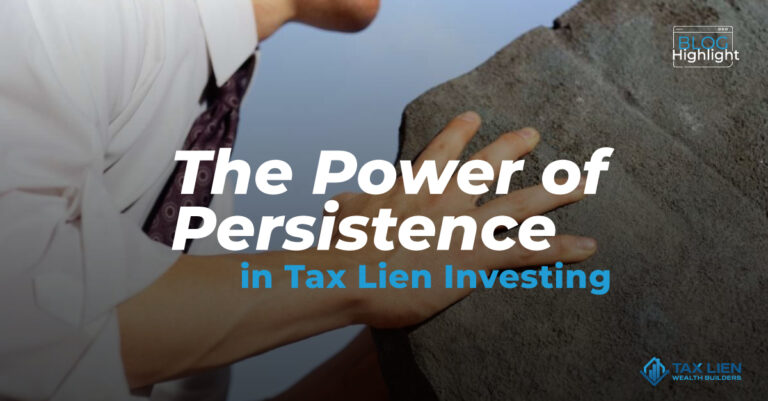How to Collect Your Returns in Tax Lien Investing
When you win a tax lien, the property owner owes you for those unpaid taxes plus a bit of interest. Your savvy investment moves could lead to returns when the property owner clears their debt.
Let’s break down the collection process for tax liens.
Winning the Tax Lien:
Bagging a tax lien at auction puts you in a unique position—you become the property’s lien holder by offering the highest bid. It’s your first step into a potentially rewarding investment.
Lien Holder Status:
Owning that lien grants you the right to collect back taxes from the property owner. They’re now indebted to you for the overdue amount plus interest—a win for your investment portfolio.
Claiming Unpaid Taxes and Interest:
The property owner needs to pay you the total amount of the back taxes plus interest. Interest rates are usually set by local authorities and can sweeten the deal.
Seeing Returns on Your Investment:
Your payoff comes when the property owner pays up. Typically, a redemption period gives them a chance to settle their dues with you.
Navigating the Redemption Period
The property owner has this window to pay you back. If they miss out, you might be looking at ownership or foreclosure rights—acquiring the property for just the back taxes owed.
Post-auction, you’re in wait mode, hoping the property owner will pay back their debt. Interest accrues during this time, marking the potential growth of your investment.
Facing Foreclosure
If payment doesn’t come through within the redemption period, foreclosure might be your next step. It’s a complex route but can be part of securing your investment.
Deciding on Reinvestment or Profit
The interest on your tax lien can significantly boost your returns, often outperforming traditional investment options like CDs.
With your returns in hand, you might invest in more tax liens or diversify your investment strategies. It’s your call.
The secret is to understand the ins and outs of tax lien collection.
It’s a blend of patience, strategic foresight, and knowledge of the legalities and financial nuances involved.







